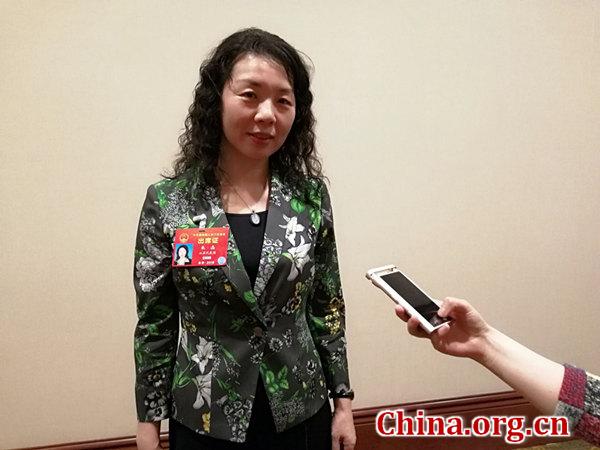NPC deputy suggests China improve agri-trade promotion
China.org.cn by Zhang Liying,March 14, 2019 Adjust font size:
Zhu Jing, a deputy to the 13th National People's Congress, has suggested China improve its trade promotion system so as to strengthen the competitiveness of its agricultural products on the global market.

Zhu, also dean of Economics and Management at Nanjing Agricultural University, said that China's agricultural exports have grown rapidly for almost a decade since the country joined the World Trade Organization in 2001, but the growth rate has slowed in recent years due to an increasingly complex trade climate.
In this context, China must improve its current agricultural trade promotion system, as it has failed to offer trade monitoring and early warning services, or programs that can help exporters address particular trade problems, Zhu said in an exclusive interview with China.org.cn on Wednesday.
By comparison, said Zhu, the U.S. has a well-established trade promotion system with market development programs that help its agricultural exporters retain and expand markets. Financing support programs additionally provide export credit guarantees, greatly boosting U.S. agricultural exports.
She urged the Chinese authorities to move faster to develop such programs covering all the problems facing exporters, each meeting a specific purpose.
Zhu said that there are several offices in charge of agricultural trade promotion in China, which have overlapping and unclear functions, resulting in wasted resources and unfocused measures.
"We should learn from U.S. experience and establish only one agency coordinating all the agricultural trade promotion programs to increase work efficiency and reduce cost," she said.
She also called for more financial support for agricultural trade promotion, pointing out that China's promotion fund for every US$100 million in agricultural exports stands at only 37 percent of the U.S.
In addition, efforts should be stepped up to amend the clauses related to agricultural trade promotion in relevant laws, as a way of consolidating the legal foundation for this initiative, Zhu added.